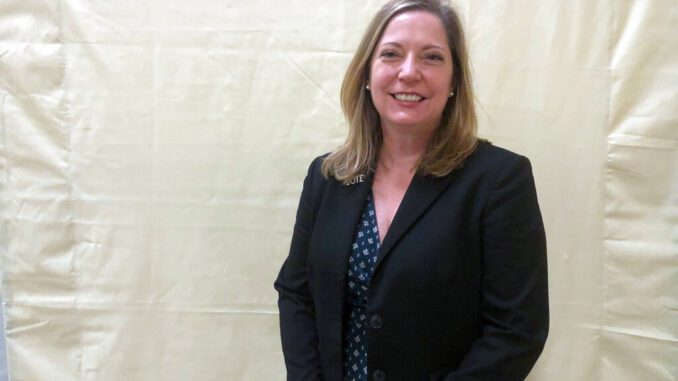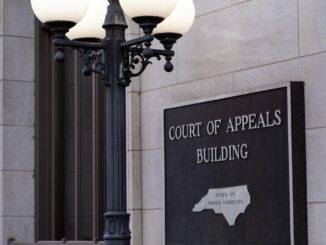
RALEIGH — The start of North Carolina candidate filing for U.S. House and legislative seats was blocked on Monday by an appeals court panel — only to be restored hours later when most Court of Appeals judges agreed they wanted to decide whether a longer filing delay was warranted.
Shortly before noon, a three-judge panel of the intermediate level appeals court had issued a temporary stay and told state and local officials not to begin accepting candidates for those seats. Their districts are the subject of litigation that argue the lines approved by the Republican-controlled General Assembly last month are illegal partisan gerrymanders.
The panel — the judges’ names were not released — had given Republican legislative leaders and the state until Thursday to respond to the arguments of the North Carolina League of Conservation Voters, which leads a lawsuit. The league’s attorney said the candidate filing period should be suspended for a while so appeals courts can scrutinize the actual maps.
But lawyers for the GOP legislators not only opposed the temporary stay, they filed a motion Monday afternoon asking that the entire 15-judge Court of Appeals decide on both the temporary delay and the league’s request for a longer filing postponement.
An order signed by the court’s clerk late in the day declared a majority of the judges agreed to rehear the matter, and that the temporary delay of the filing period has been vacated.
The late order means that filing will begin for the General Assembly and U.S. House seats at 8 a.m. Tuesday, State Board of Elections spokesperson Pat Gannon said. Candidate filing is supposed to continue until noon Dec. 17. It’s possible the state Supreme Court could intervene.
The late order capped a curious day, in which candidates for 2022 elections — save for those seeking the 170 General Assembly and 14 U.S. House seats — turned in filing documents with the State Board of Elections and at local election offices in all 100 counties. They included candidates for U.S. Senate, judicial seats and city and county positions.
State election officials learned about the temporary stay about 11:30 a.m. Gannon said at least four U.S. House candidates — including Rep. Alma Adams, who represents the Charlotte area — were turned away from the candidate filing at the State Fairgrounds in Raleigh. Congressional hopefuls who want to file in person must do so in Raleigh.
Adams said in an interview that she drove from Charlotte and arrived at the fairgrounds shortly before noon, only to be informed of the order. She flew to Washington a few hours later. “It’s been a whirlwind day for me,” she said.
State elections board Executive Director Karen Brinson Bell said Monday that candidate filing could be delayed a few days beyond the current Dec. 17 end date and keep the primary date in place, but not much more.
The league’s attorneys, who asked earlier Monday for a temporary delay of candidate filing for all offices, told the appeals court there would be “needless waste and inconvenience” should candidates file in what they consider “unlawfully drawn districts.”
But the GOP’s lawyers wrote later Monday that the appeals panel had “thrown the 2022 election cycle into unprecedented uncertainty — and for no good reason.” The full “en banc” review they requested has only been permitted by state law for about five years.
The lawsuit plaintiffs allege the maps approved by the Republican-controlled General Assembly are unlawfully designed to secure GOP control of the legislature and for the party to win at least 10 of the state’s 14 U.S. House seats. A panel of three trial judges on Friday refused the plaintiffs’ requests to block elections from occurring under the plans.
Republican legislative leaders have said the maps were lawfully drawn. Their lawyers told judges last week that while no political data was entered into mapmaking computers the General Assembly used, they also said state Supreme Court precedent allows the General Assembly to consider “partisan advantage” in drawing districts.
Gov. Roy Cooper and Attorney General Josh Stein, both Democrats who oppose the new lines, filed their own legal brief late Monday urging the state Supreme Court to intervene in the lawsuit and another redistricting case challenging the congressional map. Cooper’s veto stamp can’t be used on redistricting plans.
“This case raises profound issues of constitutional law that go the heart of our state’s ability to function as a democracy,” their brief reads, adding that partisan gerrymandering “allows legislative majorities to entrench themselves in power without regard to the popular will.”


